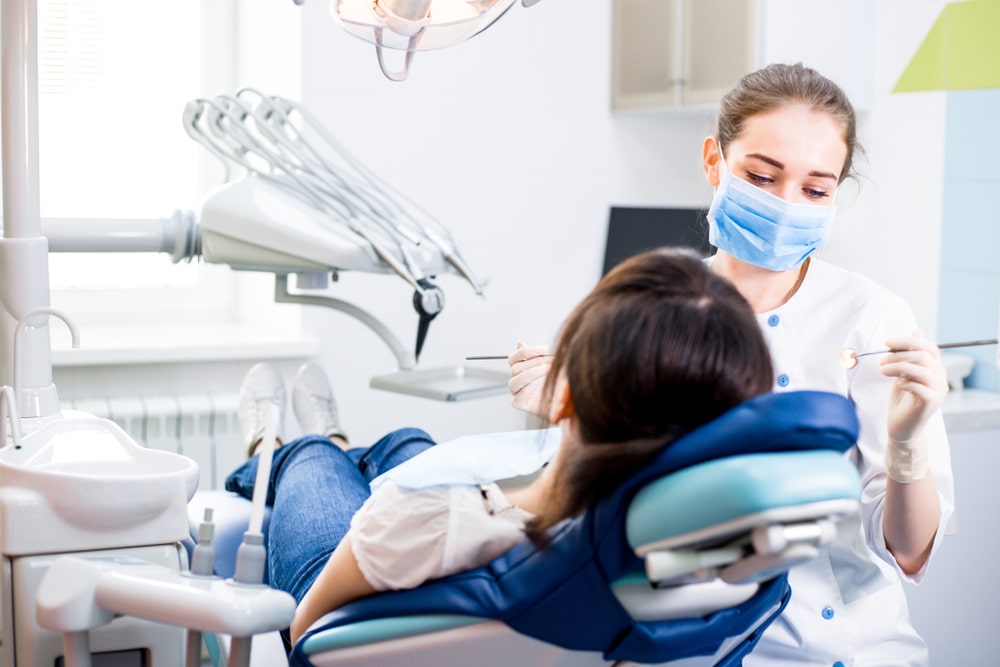The human tongue is a bit of a wonder to many people. It is necessary to swallow and speak, it helps blow bubblegum, and it heals remarkably fast when you accidentally bite or burn it. But did you know that it also can give you a few red flags when your body isn’t operating at peak performance? If you notice any changes in your tongue, pay attention – it could be trying to tell you something!
‘Hairy Tongue’
This is somewhat of a misnomer. A hairy tongue doesn’t mean your tongue is hairy. It refers to a dark coating on the surface of the tongue that sort of resembles hair – but isn’t really hair.
Hairy tongue most frequently occurs in older men, but it can occur in people of any age or gender. In fact, an estimated 13 percent of the population is said to have hairy tongue at any given time. So, what is it? Well, first of all, it’s harmless, so don’t panic. It’s basically a buildup of dead tissue on your tongue – kind of like a callous. If you do notice that your tongue is looking a little hairy, you can remove the buildup yourself with a tongue scraper or by brushing your tongue. It may not all come off immediately, but pay a bit of extra attention to it when you brush and it should clear up in no time.
Bright Red Tongue
You know that look your tongue gets after you’ve just eaten a red popsicle? Well, if your tongue suddenly starts looking that red and you haven’t been eating any foods that might cause it to change colors, you should consider seeing your doctor ASAP. A bright red tongue could be a sign of scarlet fever, a bacterial illness that often develops along with strep throat. Scarlet fever most commonly affects children between the ages of 5 and 15, but it can be easily treated with antibiotics. Don’t ignore it, though, as it can become very dangerous if left untreated, causing permanent damage to the kidneys, heart and other areas of the body.
Swollen Tongue
Picture it: You’re having a perfectly nice meal, and the next thing you know your tongue has gotten so large you cannot speak clearly. What on earth is going on? Chances are you’re having an allergic reaction to something you ate. If you have known food allergies, speak to your allergist about what to do in this situation. If you do not have any known food or other allergies, call 911 immediately.
White-Coated Tongue
If you or your child develop a thick white coating on the tongue, this is most likely a fungal infection known as thrush. Thrush is very common among babies and young children and is easily treatable. Thrush can also develop as a side effect of some inhaled-corticosteroid medicines for asthma. If you take a daily inhaler, be sure to rinse your mouth out well after each use to help reduce the risk of developing thrush.
Please note, however, if the white spots on your tongue appear to be patchy and not evenly distributed, you could be exhibiting signs of a more serious condition called leukoplakia, which can sometimes be a first warning sign in cases of oral cancer. Leukoplakia occurs most often in cigarette smokers.
Bumpy Tongue
Is your tongue bumpy? Bumps on the tongue can actually be a number of different things, from harmless to deadly. Usually a bump on the tongue is just a canker sore that goes away on its own. While we don’t know exactly what causes them, common theories range from stress to hormones.
Another reason you could have a bump on your tongue could be something called a squamous papilloma. This bump is associated with the disease HPV (human papilloma virus). If the bump is HPV, it can be removed, but there is no current cure for HPV, and you may experience similar bumps in the future.
HPV can also contribute to oral cancer, so if you are diagnosed with HPV, it is vitally important that you stay on top of your oral health and are seen regularly by a dentist and doctor to watch for signs of cancer.
Speaking of cancer, it is another reason you may have a bump on your tongue. Don’t think that because the bump is painless it’s harmless. If you have a bump anywhere on your tongue or in your mouth that does not go away on its own after a few weeks, please give Dr. George’s office a call at 724-934-3422 and set up an appointment.



